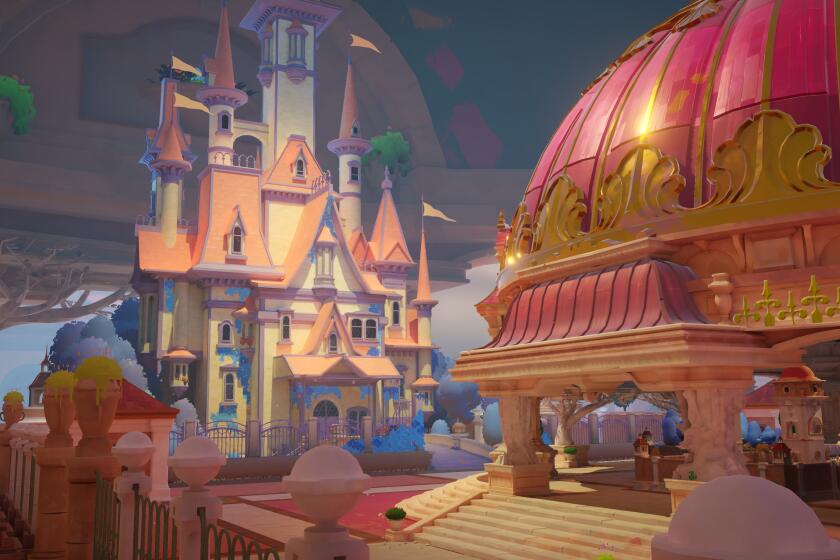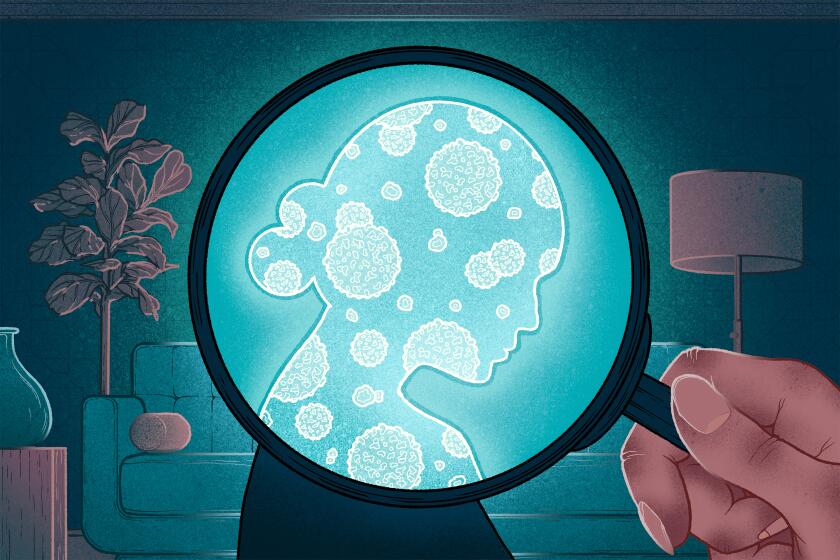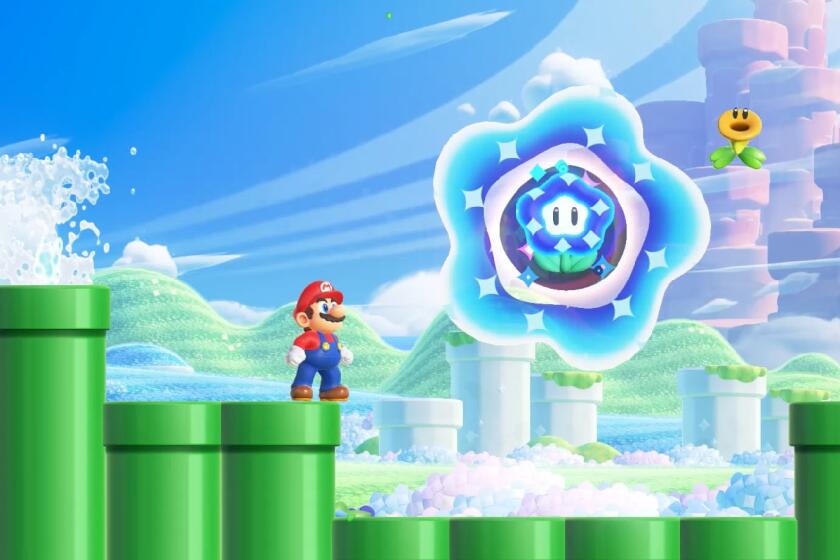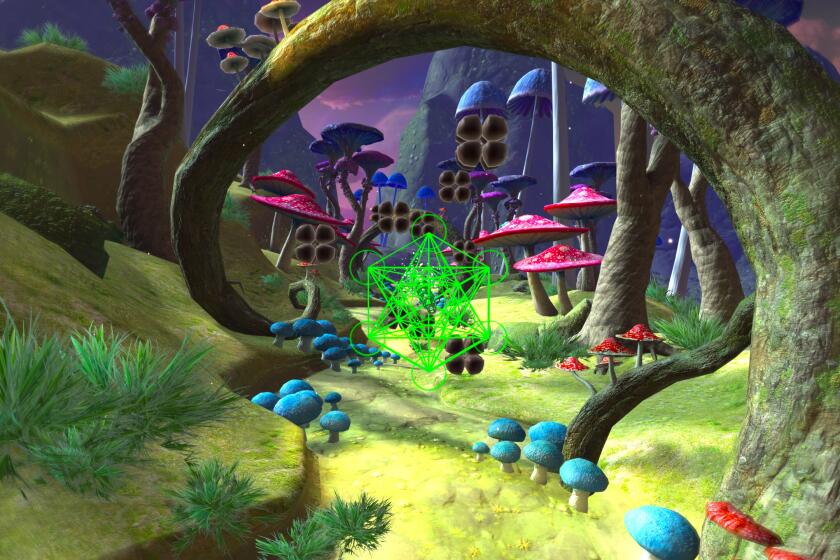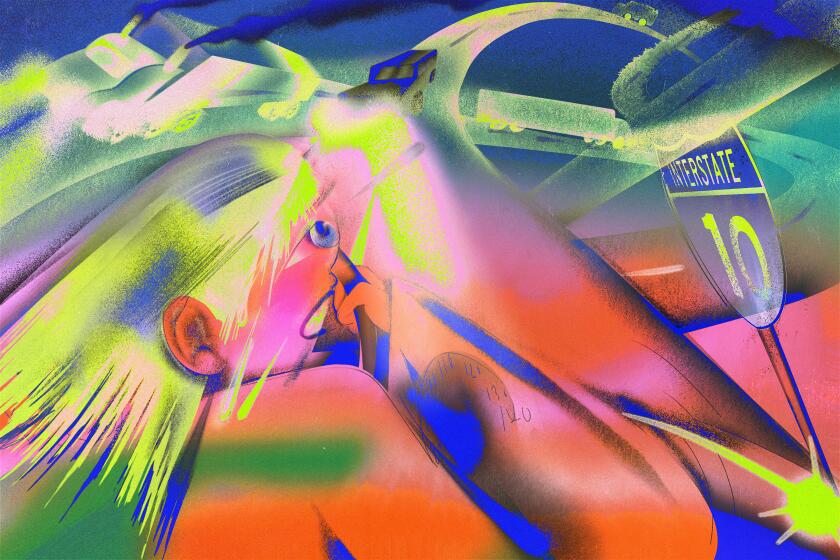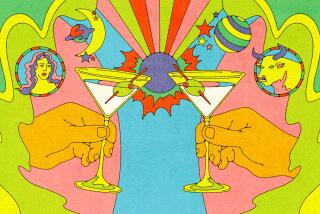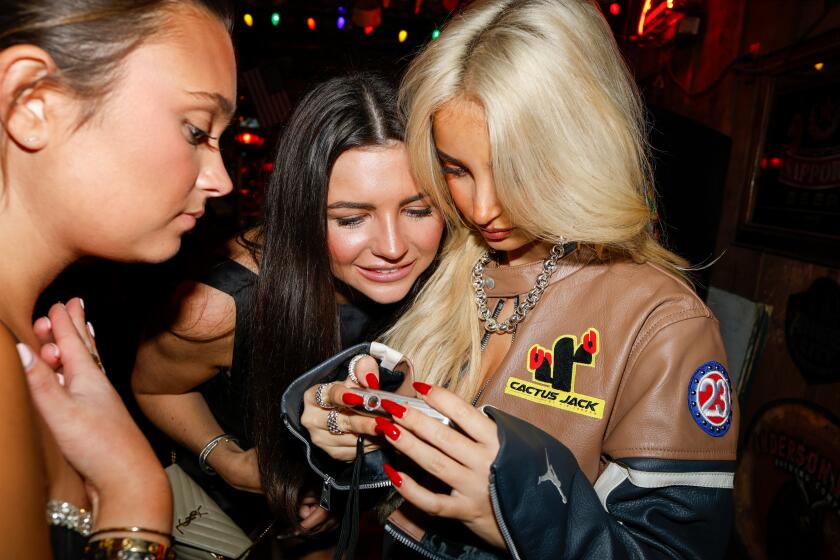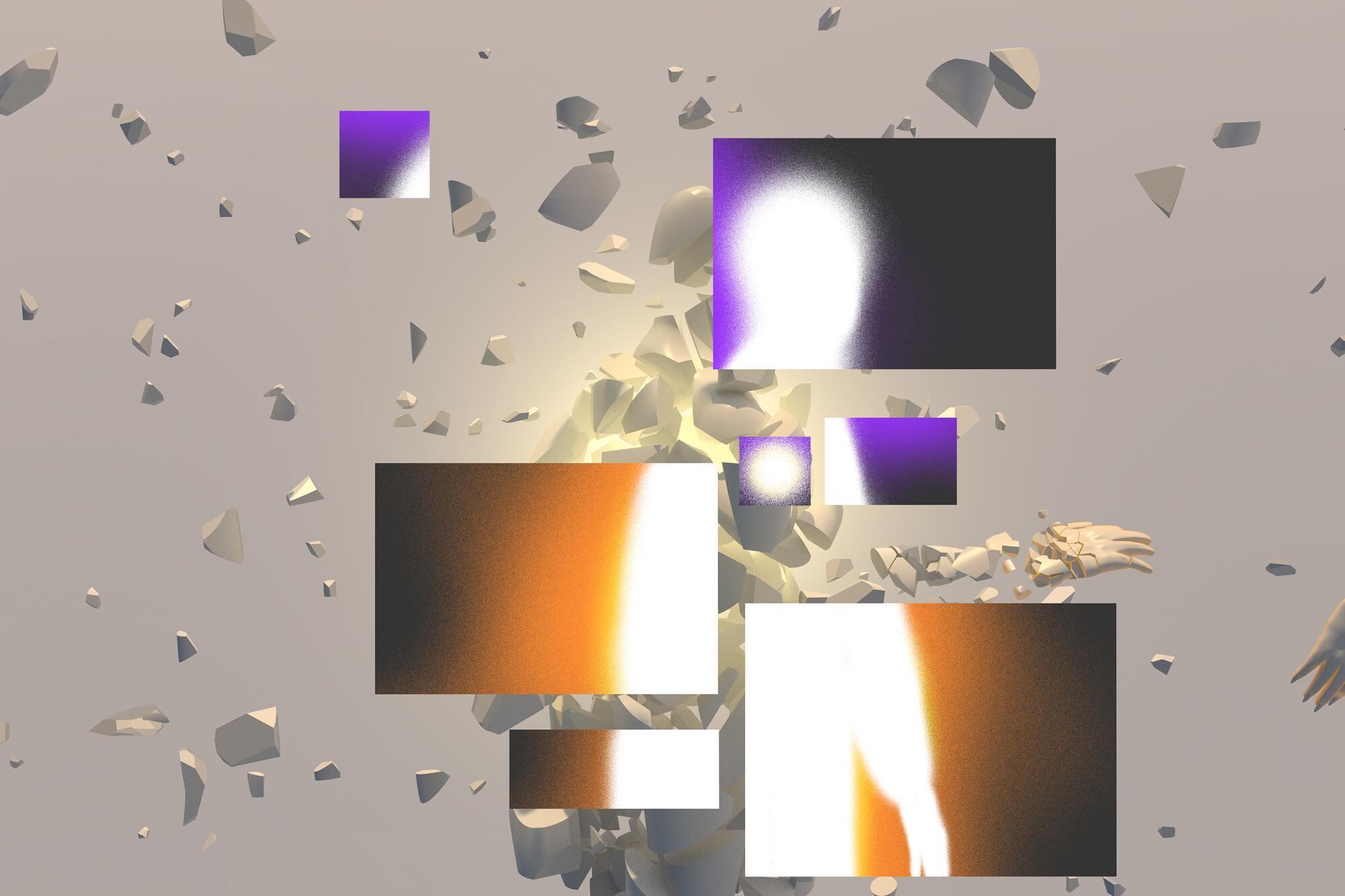
At the sight of anything that reminds me of her, I say hello, or want to give it a high five. Sometimes I say a prayer that we’ll talk again. Other times I queue up Joni Mitchell’s “Both Sides Now”:
As every fairy tale comes real, I’ve looked at love that way.
Yes, 14 months after a debilitating breakup I realize things need to change.
So I recently embarked on a research journey. Heartbreak, I discovered, is a subject of scientific inquiry, with researchers plumbing the effects and mysteries surrounding a loss. Heartache is no longer just the purview of poets. Perhaps by talking to these researchers, I reasoned, I could deal with my own heartbreak.
Experts have found that breakups, especially a difficult, unexpected one such as my own — we’d been living together less than a month — can burrow deep into our subconscious. Everyone knows they hurt, but science shows they can alter our bodies as well as our minds.
“People suffer,” said Helen Fisher, a biological anthropologist who has done extensive studies on heartbreak. “And they suffer for a while.”
More than 400 days after the breakup, I continue to stew on it, analyze it, grieve it. I also haven’t had more than three consecutive hours of sleep since the fall of 2022. That’s not completely unexpected, say researchers.
“Heartbreak,” said Guy Winch, who has written multiple books on healing and heartache, “is one of the most painful experiences we go through as people.” No wonder he called heartbreak “a form of disenfranchised grief,” and one society does not take seriously.
Heartbreak is one of the most painful experiences we go through as people.
— Guy Winch, psychologist
His words brought momentary relief, partly because extended heartbreak brings with it a sense of shame and isolation.
I have no shortage of friends who have shared tales of tragedy they view as more significant than the dissolution of my engagement. So much so that I started to think I was abnormal. Fisher assured me I wasn’t. Simply “moving on” — a rite of passage that can involve some combination of therapy, ice cream, binge watching, alcohol and time — is a myth.
“We’ve been able to prove that when you are rejected in love, you are in an addicted state,” Fisher said. How addicted? Fisher said heartbreak activates the same region of the brain triggered by, say, heroin. These areas of the brain are active when we’re happy in love, too, and can remain on high alert long after a separation occurs.
Researchers studying heartbreak also found activity in a brain region that registers physical pain.
Whew. I am normal, after all. I’m also, say experts, in danger.
“Physical changes in your body are real and they are happening,” said Florence Williams, author of “Heartbreak: A Personal and Scientific Journey,” a lauded text on the subject. “If we don’t recover from heartbreak, we will get sick. Urgency is critical, because healing does not just happen.”
Looks like I’ll need more than ice cream.

“You got it bad,” David A. Sbarra, a professor of psychology at the University of Arizona, wrote to me.
That wasn’t an official diagnosis, but considering Sbarra has made heartache his primary field of study for more than two decades, it carried weight. He’s published multiple papers that link divorce with health risks, including an elevated chance of early death. I wanted to know if the past 14 months of my life had potentially shaved a few years off it.
There’s not a simple answer. “Psychological stress,” said Sbarra, can wreak havoc on multiple parts of the body. But Sbarra assured me I was within the “normative range for adaptation,” or the expected time it takes to get back to normal, which can be up to two years for a particularly painful separation.
But Sbarra also pointed to a study that found that ruminating incessantly over a breakup can lead to long-term lack of sleep and increase one’s resting blood pressure.
I could practically feel my heart start to ache as I read other studies. For instance, separated adults may experience a disruption in how their heart rate is regulated, a stress response Sbarra likened “to releasing the brake on your car” while going downhill. It could lead to an “increased risk of a cardiovascular event among people without cardiovascular disease.” A literal broken heart.
I still find myself unconsciously doodling her name whenever I’m in possession of pen and paper. What, I wondered, was going on in my brain? Since I couldn’t find someone to freely place me in a brain scanner, I did the next best thing and rang up Fisher, who has long investigated the neural chemistry of love and heartache.
It turns out games are uniquely tailored to explore love, romance and heartbreak. Consider “Maquette,” “Genesis Noir” and “Journey of the Broken Circle,” interactive conversations that ask players to think about love.
I spoke with Fisher at one of my lowest points, when I was struggling to not reach out to my former lover every day. As I shamefully recounted sending another embarrassing “I miss you” email, Fisher interrupted and introduced me to the concept of what she calls the “rejected brain.”
A pivotal 2010 study from Fisher and her peers analyzed brain activity that occurred when a heartbroken person viewed a picture of their former partner, versus a neutral party. Some study subjects were just removed from their romantic partnership; others were separated for about 17 months. I had revealed to Fisher that I have a habit of looking at pictures of my former partner and me, and though this ritual leaves me sad, during it I find myself smiling, sometimes even laughing.
There’s science behind this behavior. Though I couldn’t see Fisher, I could practically hear her nodding as she told me what’s happening inside my head.
“We found activity in a tiny little factory near the base of the brain known as the ventral tegmental area, or VTA,” Fisher said. “And that brain region makes dopamine and sends dopamine to many brain regions. That’s what gives you elation, the focus, the motivation and the craving of intense romantic love. We also found activity in the brain region linked with deep attachment. Just because you’ve been dumped, you’re still in love.”
And there’s more.
“We also found activity in three brain regions linked with craving and addiction,” Fisher said.
I’m like a junkie, returning to a source of diminishing hits. Anyone who knows anything about addiction knows that it’s all-consuming, and with excessive craving comes a lack of self-control. Cue that late-night email that you shouldn’t have sent.
(But not all researchers are comfortable with the addiction phrasing. Grief researcher Mary-Frances O’Connor is one, and the neuroscientist and psychologist recently released the book “The Grieving Brain: The Surprising Science of How We Learn From Love and Loss.” Her preferred term is “yearning,” likening the need for loved ones to hunger and thirst.)
And if the person we thought we would spend the rest of our life with is suddenly removed, we are going to crave that person, and think about little else. This is when Fisher gave me some tough love.
“Throw them out,” she said of the photos of us in a hidden folder on my phone. “If you want to give up alcohol, you don’t keep a bottle of vodka on your desk.” And if I couldn’t toss the photos, I should stop looking at them. “All you’re doing is re-traumatizing yourself.”
All you’re doing is re-traumatizing yourself.
— Helen Fisher, biological anthropologist, to me
Unfortunately, I re-traumatize myself daily — sometimes hourly. My ex designed the tattoo on my left forearm, a multicolored fantastical sun inspired by Disneyland’s It’s a Small World. The theme park is a place I go for comfort, and I found a similar mix of playfulness and grandeur in her work. I reflexively grab it when stress or tension strike. The reality is I relied on her, heavily. The ink isn’t going anywhere, nor would I want it to.
Her art fills me with warmth, joy and even, dare I say it, a sense of awe (more on awe later). But I was making progress. If this is an addiction — or a yearning — then it may be one I learn to manage rather than forever kick. When an older, married friend tells me she occasionally thinks of a former lover and wonders “what if?,” I start to think that when it comes to heartbreak, we’re all just trying to stay on the wagon.

Let’s run with the addiction metaphor. “One of the things that we’ve historically done with addiction is to try to get people off heroin and onto something else that feeds the addiction but is less toxic,” said Steve Cole, a professor of psychiatry and behavioral sciences at the UCLA School of Medicine. Cole wonders, then, what is the methadone equivalent for a broken heart?
For many, it’s jumping back into the dating pool, the so-called “rebound.” But this is risky. As Cole puts it, you’re still living the heartbreak, and while individual results will vary, I found attempts at dating left me feeling empty, reinforcing the idea that my ex is indeed the love of my life.
Cole, however, had some hard truths to deliver. I learned about Cole via Williams and her “Heartbreak” book; his research, he told her, was to “listen for loneliness” via immune-related genes in our body. I was intrigued.
‘So lonely you could die’ isn’t just a song lyric. Neurogenomics is proving that the human nervous system is not well suited to isolation.
I wish I could say Cole scared the heartbreak right out of me. Not quite, but I think of our conversation anytime my depression tendencies are urging me back to bed. First, in simple, metaphorical terms.
“When your chief human life preserver suddenly walks off, your brain is like, ‘No, no, no, everything is not OK.’ It starts activating biological defense programs,” Cole said. “It’s sort of like an iron. An iron is a great thing to use if you need to smooth out a wrinkle, but if you leave it on all the time, 24-7, it’ll burn your house down. That’s what these fight-or-flight systems are like. They’re great if a saber-tooth cat just ran through the camp, but they’re not supposed to be there every day.”
And if you happen to be one of the estimated 15% of people who don’t recover in a year or two and fall into a near-permanent state of loneliness?
In simplified terms, a potentially “overly explosive inflammatory response.” Our body goes into hyper-drive in creating certain kinds of white blood cells, specifically those fighting bacteria. Great, as noted, for a bite from that saber-tooth cat, but less so if we’re just missing an ex (hand raised).
You will, Williams warned me, get sick. As Naomi Eisenberger, a professor of psychology at UCLA, put it, a robust immune response is “a first line of defense against foreign agents, but chronically high levels of inflammation are implicated in a bunch of chronic diseases. Pick one. Cardiovascular disease. Diabetes. Certain kinds of cancer.”
The game is less about challenges and more about life — why we explore, how we stay optimistic and, most importantly, how we can find awe in unexpected places.
Illness can take hold regardless of how much comfort food, trashy television or, well, other people, we consume. That explains why, in a particularly low period last June, I told my therapist that I wish I could have a new brain.
Along with equating rejection with physical pain, the mind can further romanticize our former partners. I don’t need help on that front — I have nothing but feelings of goodwill toward my ex.
Fisher again: “When you’re madly in love, there’s a brain region linked to what scientists call negativity bias. Activity in that brain region reduces, so you can overlook the negatives.” Love, it seems, really is blind.
If our brain really had our best interest in mind, said psychologist Winch, it would help us to develop “a lack of tolerance for the person who hurt you and doesn’t see why you’re so great.”
As it turns out science does have a prescription for recovery. It’s called awe. And I wanted it.

It may be possible to accelerate the healing of a broken heart.
Williams theorizes we can speed up our heartbreak recovery by about 25% or 30%. That’s worth it, especially “if it’s going to keep you from having an autoimmune disease.”
Williams gave me a three-pronged prescription.
The first recommendation? Calm.
“Get your body out of fight-or-flight, which is where it is when you feel abandoned and afraid of the future. You are hyper-vigilant. Calm down, however you do that, whether it’s through video games or yoga or taking hot baths.”
Video games, yes, but also music. I dedicate a portion of most every day to listening to an old or brand new record.
I thought meditation wasn’t for me. I was wrong. I just needed some technology to show me the way.
The second? Connection.
“That can be connecting to nature, which it partly was for me,” Williams said, “but also connecting to other people who care about you and who you care about.”
Because of the breakup, I’ve made new friends, reconnected with acquaintances and made a point to be more assertive in making plans. Additionally, a former interview subject and I have formed a sort of heartbreak club; we check in on each other once per month to discuss our progress. I also started volunteering at a local museum.
The third? This can be a little more abstract. We must, said Williams, find a sense of purpose, especially if, like me, the relationship became your purpose.
“What meaning can you make?” Williams said. “You have a reason to get out of bed every day, and you feel you have a contribution to make.”
As Cole put it, a sense of purpose reprioritizes your brain. “It tells the stress section of your brain, ‘Throttle back on that. We have good work to do. Don’t send out fight-or-flight messages to the bone marrow and produce immune cells.’” This is also what has inspired my fascination with awe, in its most scientific sense.
Shortly after learning of my breakup, a friend recommended I read the work of Dacher Keltner, a professor of psychology at UC Berkeley, and the faculty director of the university’s Greater Good Science Center.

Subscribers get exclusive access to this story
We’re offering L.A. Times subscribers special access to our best journalism. Thank you for your support.
Explore more Subscriber Exclusive content.
In his book “Awe: The New Science of Everyday Wonder and How It Can Transform Your Life,” Keltner describes awe as the “feeling of being in the presence of something vast that transcends your current understanding of the world.” He’s identified eight core spaces in which we can find it: Moral beauty, collective effervescence, nature, music, visual design, spirituality and religion, life and death, and epiphany.
I found awe — a spiritual sense of wonder, curiosity, speechlessness and connection — in my ex. But over the past year, Keltner helped remind me that awe existed before I fell in love with her. Awe appeals to me because there can be a mysticism to it. “You have to rely on philosophy, history, literature and science,” Keltner told me.
And creativity. This reported journey is itself a search for awe, an opportunity, perhaps, to connect to a broader community.
I asked Keltner what he does on a particularly down day. He, after all, wrote the book on the subject, one I return to often.
Freeway driving anxiety is real, especially for people suffering from grief. Here’s how one driver plans to handle the bumper-to-bumper chaos after years away.
“You just have to stop and pause,” Keltner said. But for real, pause. “Put away your checklist and your phone. Open up and feel things. Standing right now, out in the sun, I feel the sun on my skin. That starts to feel awesome.”
“I think about moral beauty,” he continued. “Whose character moves me, and how can I be like them? Nature is transformative. I’m so glad you’re going to museums. I go to a museum once a week, to just step in and feel the creativity. I turn to quotes. I teach them in my classes. Walt Whitman: ‘All goes onward and outward.’ What I love about awe is that it gives you dozens of things to do daily. I try to get 10 minutes per day.”
Ten minutes. I can do that.
I told Keltner that my natural instinct all along has been to search for awe. Walt Whitman for him; Joni Mitchell for me. At the end of the most difficult 14 months of my life, I know that when I feel that urge to reach out, to wonder how she’s doing, to dream we can talk, I have to redirect my brain, to search for something that can inspire rather than simply comfort.
It’s art that I turn to. And yes, much to the disappointment of some of the researchers I’ve interviewed, sometimes it’s her art. It is, after all, tattooed on me. But I feel, if not awe, something akin to it in the knowledge that we met and shared time together.
I believe today a heartbreak prescription requires both scientists and poets. One gives us reason; another fastens us to a continuum. And as awe teaches us, they overlap.
Simply moving on now seems like an old-fashioned idea. We’ve been permanently changed. Again, I return to Joni Mitchell:
Something’s lost, but something’s gained in living every day.
And to acknowledge that, for now, is to not only surrender to the unknown, but to also find purpose.
More to Read
Subscriber Exclusive Alert
If you're an L.A. Times subscriber, you can sign up to get alerts about early or entirely exclusive content.
You may occasionally receive promotional content from the Los Angeles Times.

